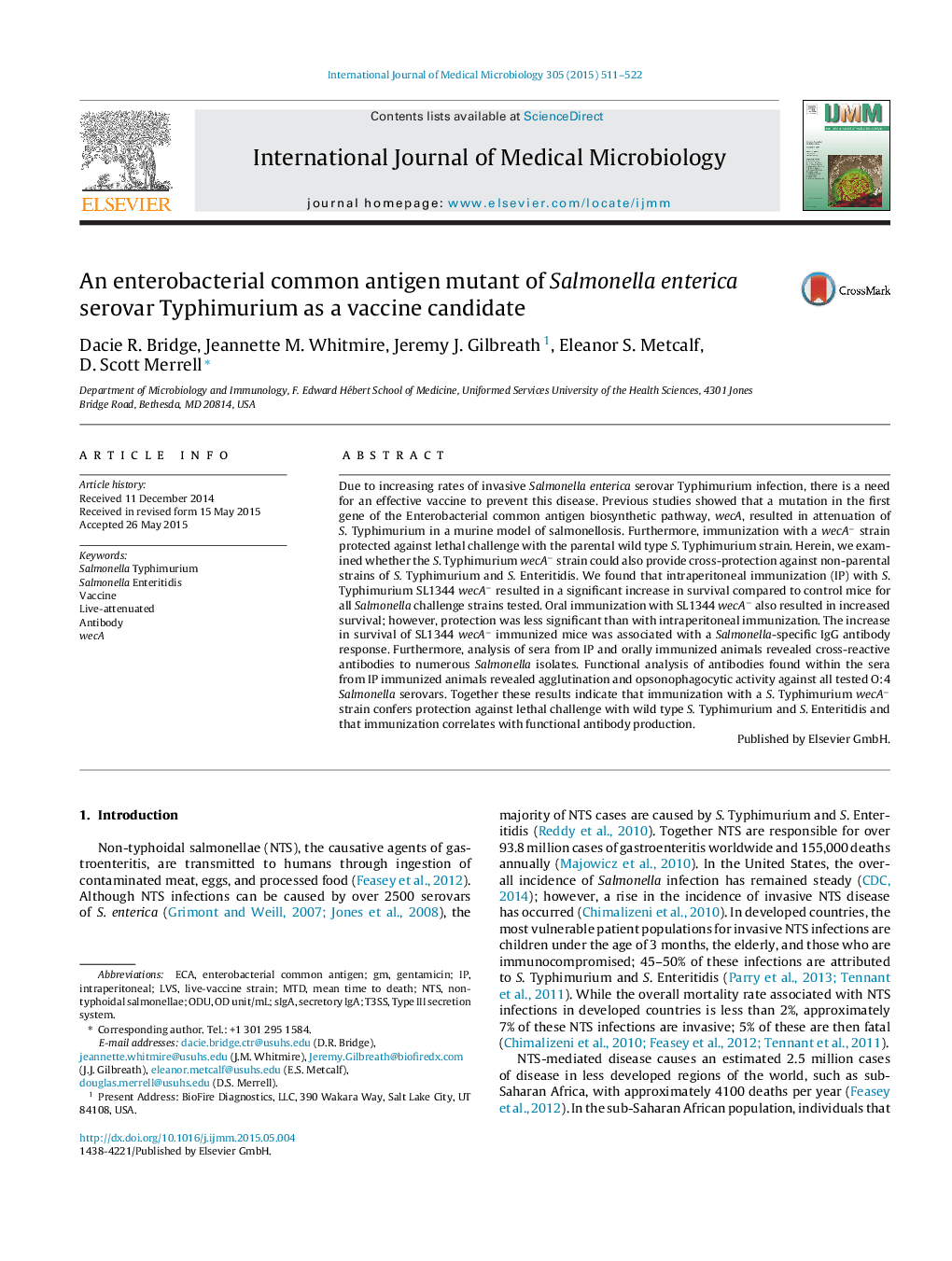| Article ID | Journal | Published Year | Pages | File Type |
|---|---|---|---|---|
| 2053838 | International Journal of Medical Microbiology | 2015 | 12 Pages |
Due to increasing rates of invasive Salmonella enterica serovar Typhimurium infection, there is a need for an effective vaccine to prevent this disease. Previous studies showed that a mutation in the first gene of the Enterobacterial common antigen biosynthetic pathway, wecA, resulted in attenuation of S. Typhimurium in a murine model of salmonellosis. Furthermore, immunization with a wecA− strain protected against lethal challenge with the parental wild type S. Typhimurium strain. Herein, we examined whether the S. Typhimurium wecA− strain could also provide cross-protection against non-parental strains of S. Typhimurium and S. Enteritidis. We found that intraperitoneal immunization (IP) with S. Typhimurium SL1344 wecA− resulted in a significant increase in survival compared to control mice for all Salmonella challenge strains tested. Oral immunization with SL1344 wecA− also resulted in increased survival; however, protection was less significant than with intraperitoneal immunization. The increase in survival of SL1344 wecA− immunized mice was associated with a Salmonella-specific IgG antibody response. Furthermore, analysis of sera from IP and orally immunized animals revealed cross-reactive antibodies to numerous Salmonella isolates. Functional analysis of antibodies found within the sera from IP immunized animals revealed agglutination and opsonophagocytic activity against all tested O:4 Salmonella serovars. Together these results indicate that immunization with a S. Typhimurium wecA− strain confers protection against lethal challenge with wild type S. Typhimurium and S. Enteritidis and that immunization correlates with functional antibody production.
